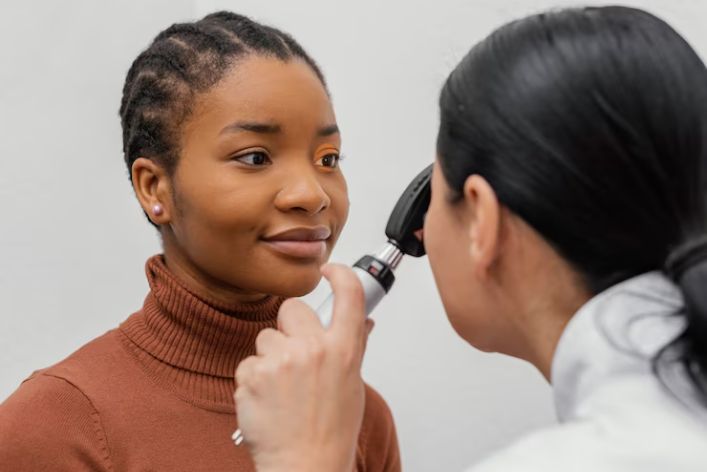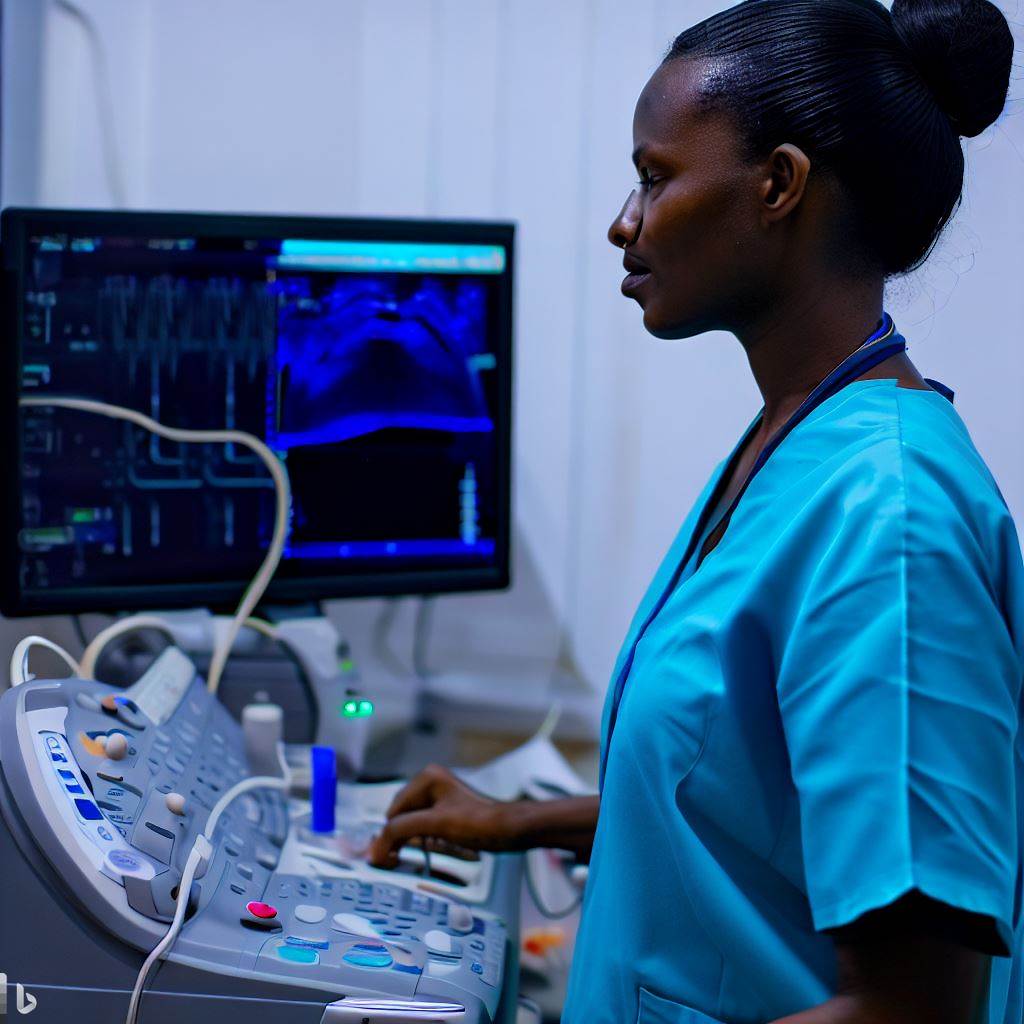Introduction
Optometry is a branch of healthcare concerned with the examination, diagnosis, and treatment of eye diseases and abnormalities.
The field of optometry is crucial in promoting eye health by providing comprehensive eye care services to individuals of all ages.
Optometrists play a significant role in identifying and managing a wide range of eye conditions, such as refractive errors, glaucoma, and cataracts.
Nigeria, like many other countries, recognizes the importance of optometry in ensuring the overall well-being of its citizens.
Optometry in Nigeria has evolved significantly in recent years, with the establishment of several optometry schools and the introduction of advanced technologies to enhance eye care service delivery.
Optometrists are critical in reducing the burden of preventable blindness and visual impairment in Nigeria, where the prevalence of these conditions is high.
Through early detection and timely treatment, optometrists can prevent blindness and improve the quality of life of millions of Nigerians.
Optometry in Nigeria also offers employment opportunities for thousands of graduates, contributing to the socio-economic development of the country.
Therefore, the promotion and development of optometry in Nigeria are vital for achieving the goal of universal health coverage and improving the eye health of the population.
Read: Specialty Nursing Careers: Untold Stories of Nigeria
The Current State of Optometry in Nigeria
Overview of Optometry in Nigeria
Optometry is a healthcare profession that deals with the diagnosis, treatment, and management of eye diseases and disorders.
In Nigeria, optometry is relatively young, with the first school of optometry established in 1972 at the University of Benin.
Challenges facing optometry in Nigeria
Despite the growing need for quality eye care services in Nigeria, optometry faces numerous challenges that impede its progress.
These challenges include inadequate infrastructure, limited access to equipment, inadequate training of optometrists, and a lack of funding.
Inadequate infrastructure
Optometry in Nigeria is hindered by the lack of infrastructure for eye care services. Most eye care facilities in the country are poorly equipped, with inadequate resources to meet the growing demand for eye care services. This has created a significant barrier to improving eye health in the country.
Limited access to equipment
One of the biggest challenges facing optometry in Nigeria is the limited access to modern equipment. Many eye care centers lack modern equipment, which makes it difficult for optometrists to properly diagnose and manage eye disorders. This has resulted in a high rate of misdiagnosis and an increase in preventable blindness.
Inadequate training of optometrists
Many optometrists in Nigeria lack adequate training due to the absence of standard optometry educational curricula. The training of optometrists is critical to the provision of high-quality eye care services. The absence of standard curricula has resulted in the training of optometrists that are not well equipped to deal with the demands of modern eye care services.
Lack of funding
Optometry in Nigeria suffers from a lack of funding from the government. This has resulted in a limited number of eye care centers and a shortage of skilled optometrists. The shortage of skilled optometrists has made it difficult to provide adequate eye care services to the population, leading to avoidable blindness in Nigeria.
Impact of these challenges on eye health in Nigeria
The challenges facing optometry in Nigeria have had a significant impact on eye health in the country. The lack of infrastructure, equipment, and funding has resulted in a high rate of preventable blindness.
Many people suffer from cataracts, glaucoma, and other eye diseases that could easily be treated with proper eye care services. The impact of these challenges has been particularly severe in rural areas, where access to eye care services is limited.
Optometry is an essential healthcare profession that is critical to the promotion of eye health in Nigeria.
The current state of optometry in the country is characterized by numerous challenges that impede its progress.
These challenges include inadequate infrastructure, limited access to equipment, inadequate training, and a lack of funding.
The impact of these challenges on eye health in Nigeria has been significant, leading to a high rate of preventable blindness.
Urgent action is needed to address these challenges to improve eye health in the country.
Read: The Path to Becoming a Surgeon in Nigeria

Efforts to Improve Optometry in Nigeria
Eyesight is crucial for personal and national development. However, in Nigeria, inadequate optometry services, inadequate funding, and inadequate training of eye care professionals have led to poor eye health. But, efforts are being made to improve optometry services in the country.
Government Initiatives to Improve Eye Health
The Nigerian government has initiated several policies to improve eye health in the country. For example, the National Eye Health Program (NEHP) has been implemented to reduce the incidence of blindness and visual impairment caused by preventable eye conditions such as cataracts, glaucoma, and refractive errors.
The NEHP provides comprehensive eye care services, including eye screening, treatment, and surgery, to people in rural areas who otherwise would not have access to such services. Additionally, the program also provides funding for research and training of eye care professionals.
Non-Governmental Organizations Promoting Optometry and Providing Services
Many non-governmental organizations (NGOs) are also contributing to the improvement of optometry in Nigeria. One of such NGOs is Optometry Giving Sight (OGS), a global organization that aims to improve access to eye care services for people in need by providing training and resources to eye care professionals.
The organization has implemented several programs in Nigeria that aim to improve optometry services. For example, the OGS has funded the establishment of eye care centers, the provision of eye screening and treatment to people in underserved communities, and the training of eye care professionals.
Measures Being Taken by the Nigerian Optometric Association to Improve the Profession
The Nigerian Optometric Association (NOA) is the professional body that represents optometrists in the country. The association has taken several measures to improve the profession, the most important of which is advocacy.
The NOA advocates for the recognition of optometry as a crucial component of primary health care in Nigeria. It also advocates for increased funding for the training of eye care professionals and for the establishment of more eye care centers in rural areas.
In addition to advocacy, the NOA also organizes training programs for its members to improve their clinical and professional skills.
The Nigerian government, NGOs, and the NOA are making commendable efforts to improve optometry services in the country.
However, we need to do more, especially in funding and training eye care professionals. We also need to raise public awareness about the significance of eye health and allocate more resources to preventive measures like eye screening.
Read: Inside the Life of General Practitioners in Nigeria
The Future of Optometry in Nigeria
Optometry plays a crucial role in ensuring a healthy population in Nigeria. With the country facing an increasing burden of eye diseases and poor eye health, the need for improved optometry services has become even more urgent.
In this blog chapter, we will explore the potential impact of improved optometry on eye health in Nigeria, the actions to further enhance optometry in the country, and how Nigeria’s optometry experience can serve as a model for other countries.
Potential Impact of Improved Optometry on Eye Health in Nigeria
Improved optometry services in Nigeria could have a significant impact on reducing the burden of eye diseases and improving the overall eye health of the population.
With over 4 million Nigerians suffering from blindness and over 50% of these cases being preventable, it is clear that there is a great need for improved optometry services.
Optometrists can help identify early signs of eye diseases and provide timely intervention to prevent blindness.
Furthermore, improved optometry services can also help address refractive errors such as myopia, hyperopia, and astigmatism, which affect a large proportion of the Nigerian population.
Correcting refractive errors can improve the quality of life for individuals and enhance their productivity, particularly in sectors that require good vision, such as education, agriculture, and manufacturing.
Actions That Can Be Taken to Further Improve Optometry in Nigeria
Several actions can be taken to further improve optometry services in Nigeria. One of the most critical is increased investment in infrastructure and training.
Despite the increasing demand for optometry services, there is a shortage of qualified optometrists in Nigeria, which limits the reach of optometry services.
Governments, non-governmental organizations, and other stakeholders must collaborate to increase the number of optometry schools, improve the curriculum, and provide better training for optometrists.
Additionally, expanding optometry services to rural areas can significantly improve access to eye care services for the underserved population.
Optometrists can work in collaboration with community health workers to provide eye care services in remote communities.
This approach has been successful in other African countries where the challenges of accessibility to healthcare are similar to those in Nigeria.
How Improved Optometry in Nigeria Can Serve as a Model for Other Countries Facing Similar Challenges
The establishment of the Nigerian Optometric Association stands out for its significant contribution to professional growth and development.
The Nigerian government’s recognition of optometry’s importance in improving eye health is evident through its inclusion of optometry services in the National Health Insurance Scheme.
This inclusion has boosted the demand for optometry services, leading to increased private sector investment.
Government, non-governmental organizations, and private sector stakeholders can collaborate to adopt lessons like improving infrastructure and training, expanding services to rural areas to enhance optometry services.
Improved optometry services hold significant potential for enhancing the eye health of the Nigerian population.
To further improve optometry services, stakeholders should take actions such as increasing investment in infrastructure and training, expanding services to rural areas, and fostering collaborations.
Read: Anatomy of Nigeria’s Healthcare Professions: Salary Guide
Conclusion
Optometry plays a crucial role in promoting eye health in Nigeria. Without proper eye care, millions of Nigerians will suffer from vision problems, which can limit their ability to work, study, and live a happy life.
Therefore, it is essential for individuals, organizations, and the government to support efforts to improve optometry in the country.
We call upon everyone to take action and contribute to the cause.
Whether it is by donating money, volunteering, or spreading awareness, we must all do our part to ensure that all Nigerians have access to quality eye care.
Together, we can make a significant impact and create a future of healthy vision for all.
Finally, let us remain hopeful for a future where eye diseases are preventable, and everyone can see the world clearly.
With the right resources and support, we believe it is possible to achieve this vision. Let us continue to work towards this goal and make a better Nigeria for everyone.




